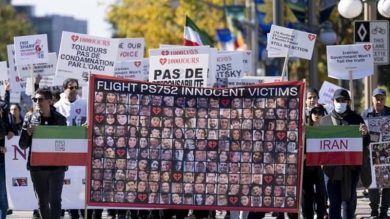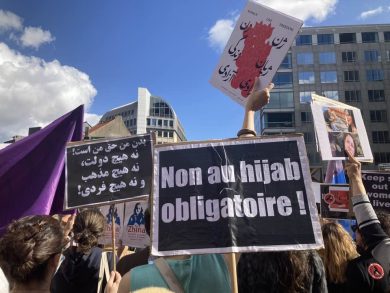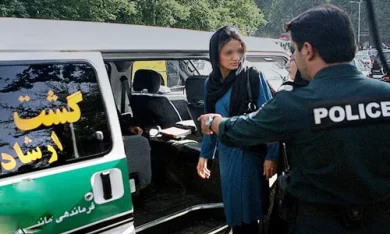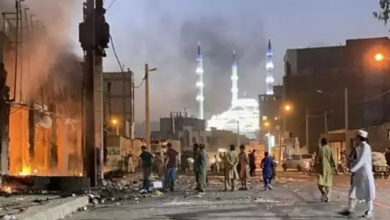The Islamic Revolutionary Guard Corps (IRGC) has established itself as a dominant force not only within Iran but across the Middle East, where it exerts significant influence through its extensive network of proxy militias. Often referred to as Iran’s “shadow army,” these groups are key instruments of the IRGC’s strategy to expand Iran’s geopolitical influence, destabilize adversaries, and maintain leverage over regional affairs. This analysis delves into how the IRGC builds, controls, and utilizes proxy militias, examining their structure, operations, and impact on regional and global security.
The Role of Proxy Militias in IRGC Strategy
Proxy militias are central to the IRGC’s asymmetric warfare strategy, allowing Iran to project power without direct military confrontation. This approach provides several strategic advantages:
1. Plausible Deniability
Proxy groups enable Iran to distance itself from actions carried out by militias, reducing the risk of direct retaliation against the Iranian state.
2. Regional Influence
By backing militias in neighboring countries, the IRGC ensures that Iran has a decisive role in shaping political and military developments in the region.
3. Cost-Effective Warfare
Supporting militias is far less costly than deploying regular Iranian forces, enabling the IRGC to sustain prolonged conflicts with minimal domestic backlash.
4. Destabilizing Adversaries
The IRGC uses proxy groups to weaken regional rivals, such as Saudi Arabia, Israel, and the United States, by fueling instability and draining their resources.
Building and Controlling Proxy Militias
The IRGC’s elite Quds Force, tasked with overseeing Iran’s external operations, plays a pivotal role in building and maintaining proxy militias. Its strategies include:
1. Recruitment and Ideological Indoctrination
The IRGC recruits fighters from Shia communities across the Middle East and beyond, leveraging shared religious and ideological ties. Many recruits are motivated by economic incentives, sectarian loyalty, or resistance to perceived Western imperialism. The IRGC often frames its support as part of a larger struggle against oppression and injustice.
2. Training and Arming
Proxy militias receive extensive training from the IRGC, including guerrilla tactics, bomb-making, and advanced weaponry operations. Training often takes place in Iran, Lebanon, or Syria, with groups like Hezbollah playing a key role in mentoring newer militias.
3. Financial Support
The IRGC funds its militias through Iran’s state budget, illicit financial networks, and smuggling operations. This financial backing ensures that these groups remain operational even in resource-scarce environments.
4. Operational Oversight
While proxy militias often operate with a degree of autonomy, the IRGC maintains significant control over their strategic goals. Senior IRGC officers frequently oversee operations, ensuring alignment with Iran’s broader geopolitical objectives.
Key IRGC-Backed Proxy Militias
The IRGC controls or influences a vast network of militias, each serving specific strategic purposes in their respective regions:
1. Hezbollah (Lebanon)
• Role: Hezbollah is the IRGC’s most established and powerful proxy, serving as a political party, military force, and ideological ally.
• Impact: It acts as a deterrent against Israel, supports IRGC operations in Syria, and serves as a model for other militias.
• Support: The IRGC provides Hezbollah with funding, weapons, and training, solidifying its dominance in Lebanon.
2. Popular Mobilization Forces (Iraq)
• Role: Formed to combat ISIS, the Popular Mobilization Forces (PMF) consist of several Shia militias closely aligned with the IRGC.
• Impact: These groups wield significant political and military influence in Iraq, often undermining the country’s sovereignty by prioritizing Iran’s interests.
• Support: The IRGC supplies weapons, logistics, and political backing to key factions within the PMF.
3. Houthis (Yemen)
• Role: The Houthis serve as a critical tool for the IRGC in its proxy war against Saudi Arabia, destabilizing the Arabian Peninsula.
• Impact: Houthi missile and drone attacks have targeted Saudi infrastructure and created a humanitarian crisis in Yemen.
• Support: The IRGC provides weapons, including drones and missiles, and military training to Houthi forces.
4. Shia Militias in Syria
• Role: Various IRGC-backed militias, including Afghan and Pakistani fighters, were instrumental in propping up Bashar al-Assad’s regime during the Syrian Civil War.
• Impact: These groups helped secure Iran’s strategic foothold in Syria, creating a land corridor from Tehran to the Mediterranean.
• Support: The IRGC directly oversees operations, coordinating with Hezbollah and other allies.
5. Palestinian Groups (Hamas and Islamic Jihad)
• Role: The IRGC supports these groups as part of its strategy to oppose Israel and maintain influence in Palestinian territories.
• Impact: By funding and arming Hamas and Islamic Jihad, the IRGC perpetuates the Israeli-Palestinian conflict and pressures Israel militarily.
• Support: The IRGC supplies weapons, including rockets and financial aid, to bolster their military capabilities.
The Global Impact of IRGC Proxy Militias
The IRGC’s proxy militias have far-reaching implications for regional and global security:
1. Destabilization of Fragile States
By empowering militias that often operate outside state control, the IRGC weakens central governments and exacerbates political instability in countries like Iraq, Yemen, and Lebanon.
2. Perpetuation of Conflicts
IRGC-backed militias play a significant role in prolonging conflicts, as seen in Syria and Yemen, where their involvement has resulted in devastating humanitarian crises.
3. Threats to International Security
The IRGC’s proxies have conducted attacks on civilian and military targets, including U.S. forces in Iraq and Saudi oil facilities, demonstrating their capacity to disrupt global stability.
4. Expansion of Weapons Proliferation
The IRGC’s transfer of advanced weaponry to its proxies, including drones, missiles, and precision-guided munitions, increases the lethality of these groups and raises the risk of regional escalations.
Challenges in Countering IRGC Proxy Networks
Efforts to counter the IRGC’s proxy networks face significant challenges:
1. Adaptability of Proxy Networks
The IRGC’s decentralized model allows its militias to operate autonomously, making them difficult to dismantle comprehensively.
2. Complex Political Dynamics
Many IRGC-backed militias hold political power in their respective countries, complicating efforts to isolate or target them without causing further instability.
3. Global Support for Iran
Countries like China and Russia often provide diplomatic and economic support to Iran, undermining international efforts to weaken the IRGC’s influence.
4. Humanitarian Concerns
Actions targeting militias, such as sanctions or military interventions, can exacerbate humanitarian crises in already fragile regions.
Strategies to Counter IRGC Proxies
To effectively counter the IRGC’s proxy network, a multifaceted approach is needed:
1. Sanctions and Financial Pressure: Targeting IRGC-affiliated entities and individuals can disrupt funding and logistical support for proxy militias.
2. Strengthening Regional Governments: Empowering central governments in Iraq, Lebanon, and Yemen can reduce the influence of militias and restore state sovereignty.
3. Countering Arms Proliferation: Enhanced international cooperation to intercept weapons shipments can limit the capabilities of IRGC proxies.
4. Diplomatic Isolation: Coordinated efforts to diplomatically isolate Iran and its proxies can diminish their regional legitimacy and support.
Conclusion
The IRGC’s control over proxy militias represents a significant threat to regional and global stability. By funding, training, and arming these groups, the IRGC perpetuates conflict, destabilizes states, and undermines international security.While countering this shadow army presents complex challenges, sustained global efforts—including sanctions, diplomacy, and support for affected states—can weaken the IRGC’s influence and promote stability in the Middle East.
Join Our Newsletter!
Stay informed with the latest updates, news, and ways to take action in the fight for justice and global security. Sign up now to get updates delivered straight to your inbox!





